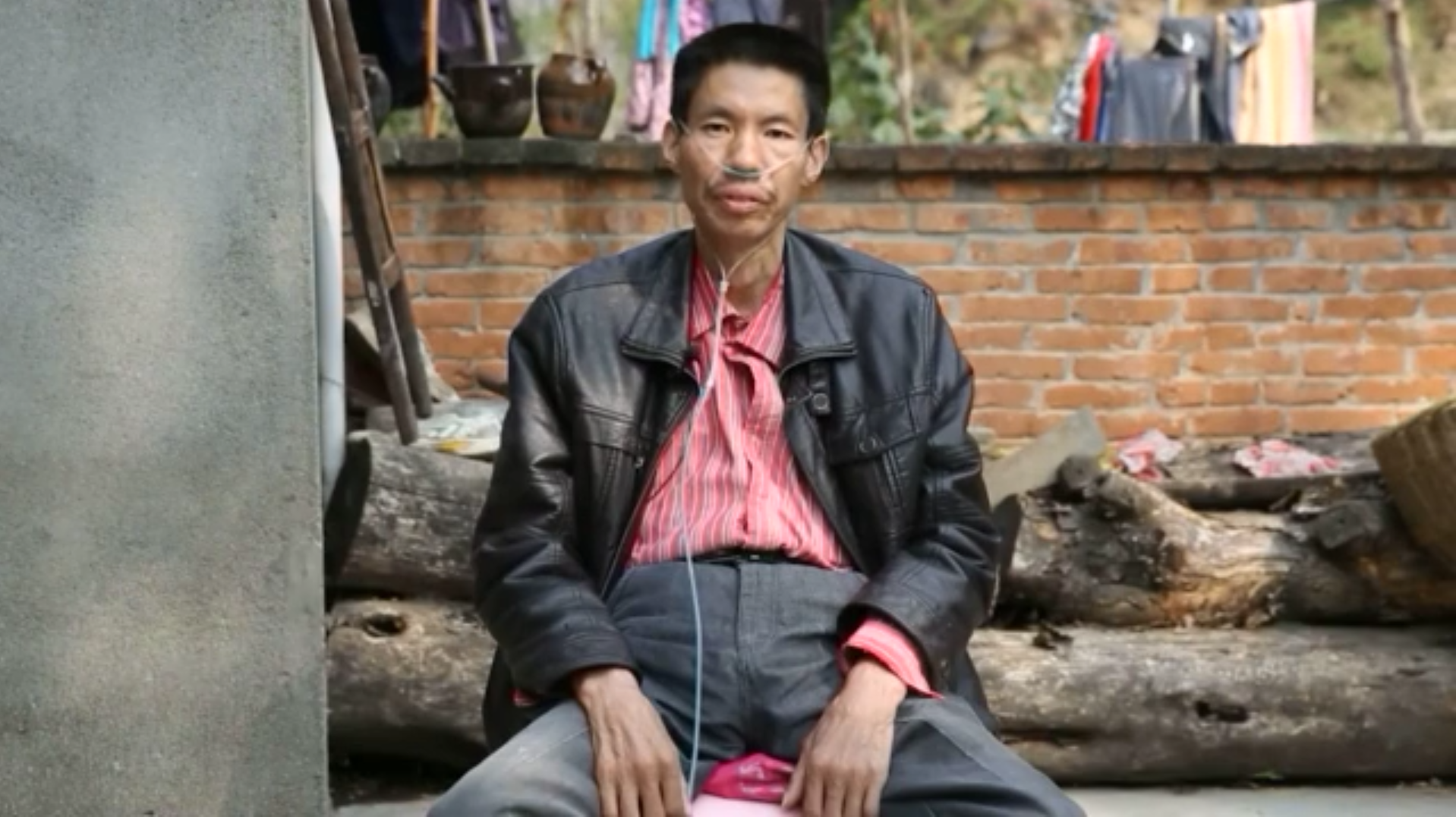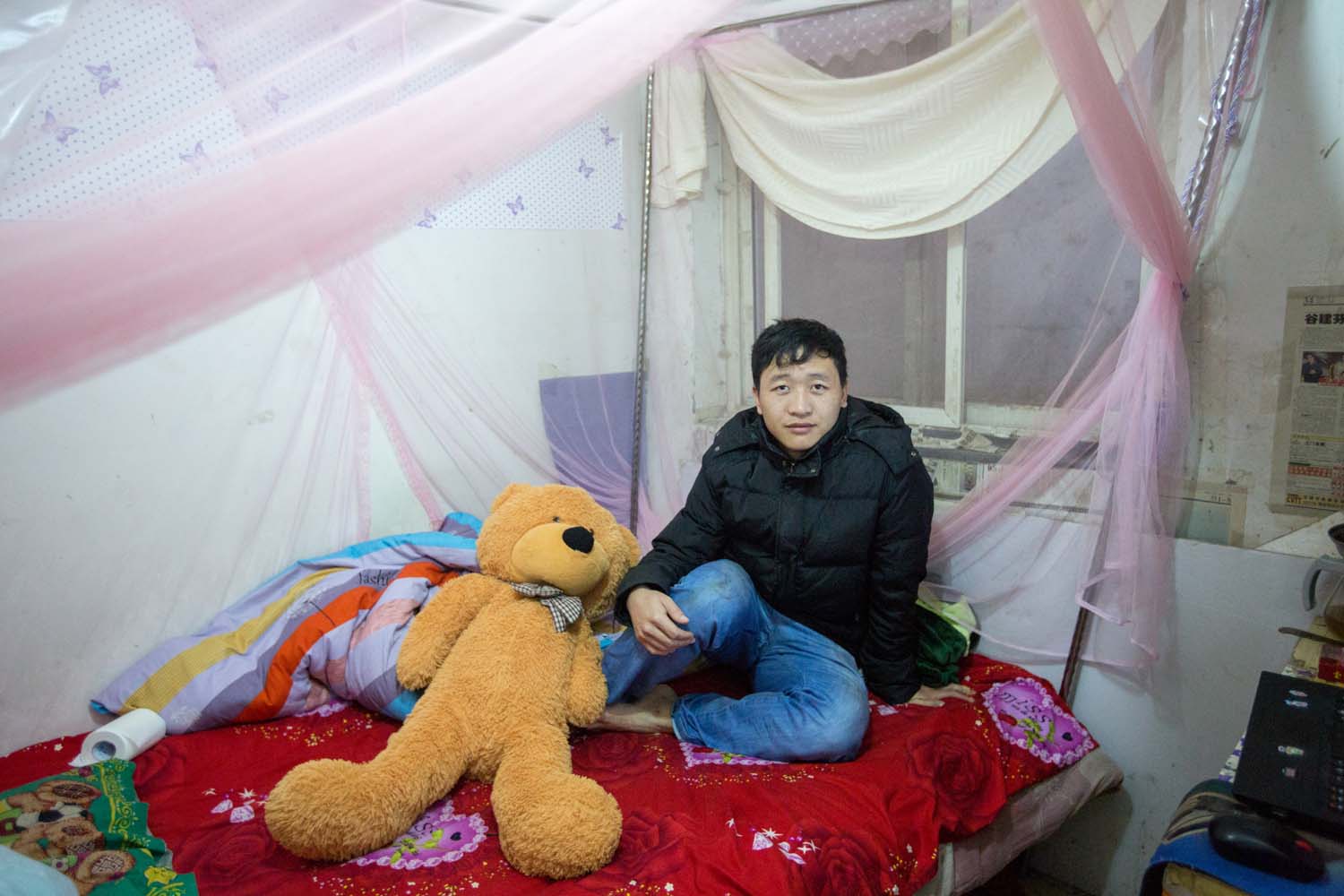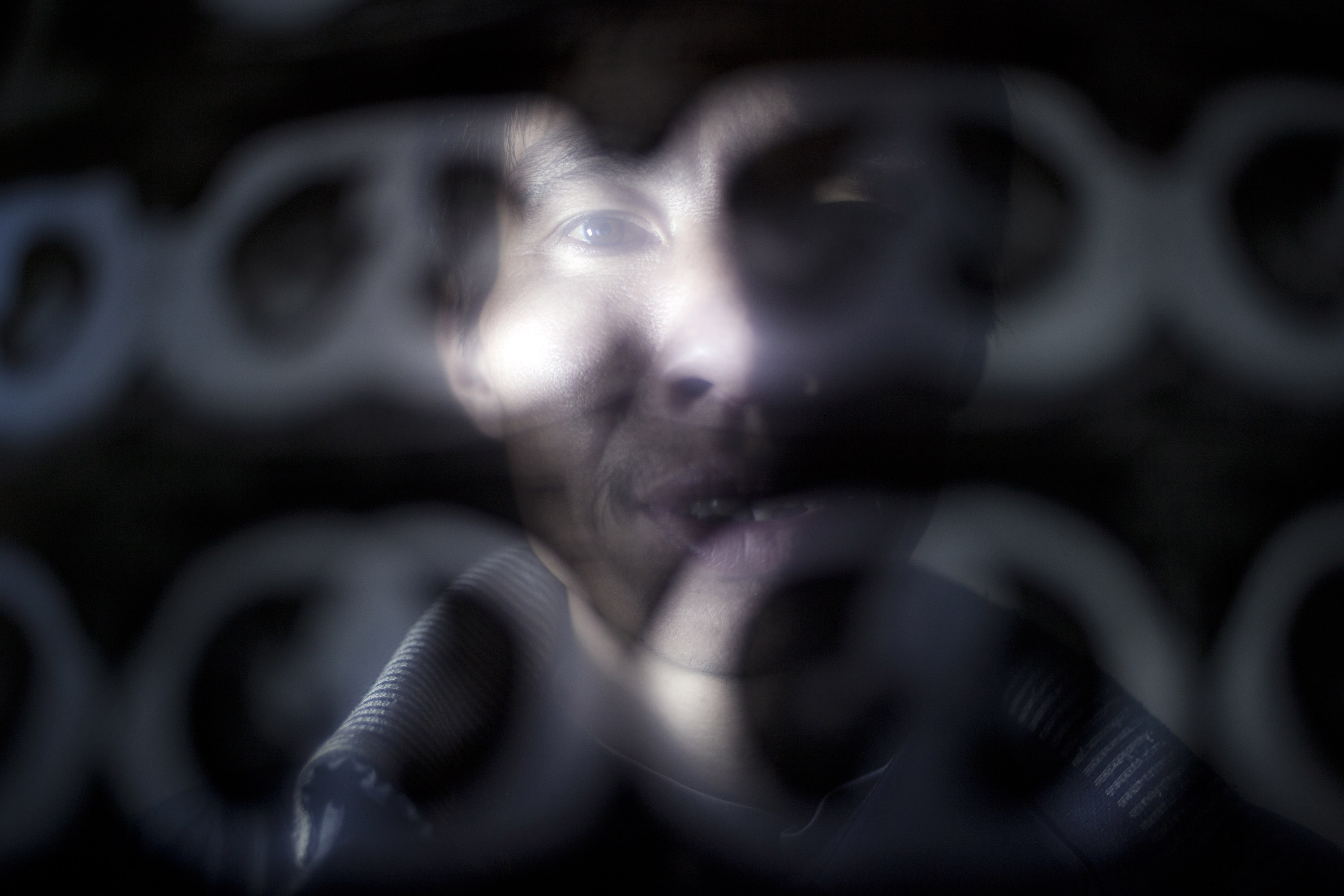
Over the four years I have known him, He Quangui, a gold miner from Shaanxi, has told me many times he wants to travel with me back to Beijing. It's not just me he wants to visit. He dreams of going to the Chinese leadership's compound, Zhongnanhai, for an audience with Chinese President Xi Jinping. He wants to tell Xi about the plight of migrant worker-miners like himself, who heeded the government's call and left the land to work as migrant laborers to bring prosperity to their families—and fueling China's great growth. Failing that, he told me, he wanted to go to Tiananmen Square and unfurl a red banner to scream for help for migrant-miners like him who are now dying from silicosis, an occupational lung disease.
I have been reporting on the disease—which is caused by the inhalation of fine silica dust, and is most prevalent among miners who lack effective protective gear—for four years. Silicosis is preventable, with suitable masks, use of water drills, and good ventilation, but it is also irreversible. Many migrant workers like He, who unlike state workers have no medical and legal recourse, face the ravages of the disease without sufficient healthcare. State-employed workers with silicosis are typically diagnosed early on in annual medical checks, get full healthcare, and their life expectancy is normal. Migrant workers, on the other hand, often die within two to three years of finding out they are sick—sometimes choosing to not seek treatment, or taking their own lives to unburden their families.
One night in February 2013, as we sat chatting in his bedroom in his spartan farmhouse in Shaanxi's mountains, He told me of his dream again, and said if all that failed, he would blow himself up with dynamite on Tiananmen Square. I strongly dissuaded him and briefly chided him for not being more thoughtful, less desperate. I should have understood more deeply that at that time, when he was particularly ill, he was despairing. He really was at the end of his rope. He tried to suffocate himself at 4:30am the following day, with his wife, son, and I sleeping in or next to his room. We found him and he recovered.
About half a year later he miraculously fought off severe tuberculosis. On a trip back to visit him, I asked him: "If you really went to Beijing and met President Xi, what would you say to him?"
I set up my camera for him and left him on his own to speak into it. He invoked the "China Dream" slogan that has been key in Mr Xi's rhetoric, and chose to address the Chinese president in Shaanxi dialect, speaking as one Shaanxi man to another.

Education Resource
Meet the Journalist: Sim Chi Yin
Sim Chi Yin, a Beijing-based photographer and a member of the VII photo agency, discusses her...





